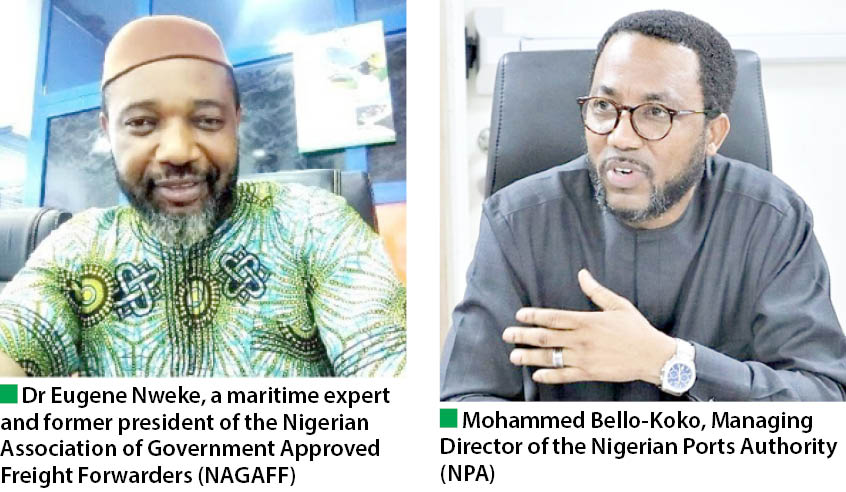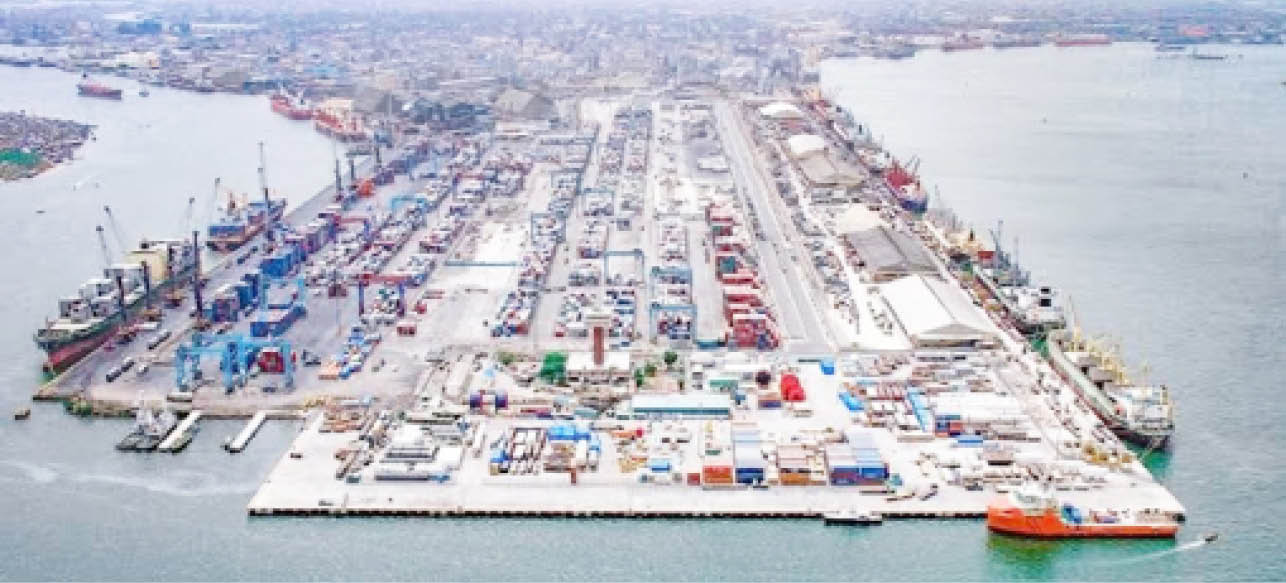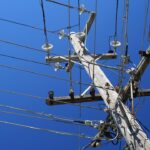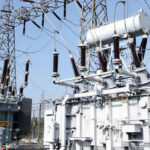Despite the nation’s seaports handling more than 85 per cent of import trade valued at over $15 billion annually, poor infrastructure, epileptic power supply, among others, have hampered its full potential.
With a coastline of 852 kilometres bordering the Atlantic Ocean in the Gulf of Guinea and a maritime area of over 46,000 km2, Nigeria is no doubt a huge maritime destination.
The country, however, is plagued with a weak infrastructure incapable of meeting the needs of a growing economy and growing population.
Nigeria is said to be losing an estimated $15bn annually due to congestion and other maritime related issues at the nation’s seaport as importers seem to have taken solace in other ports in the sub region. While the cost of doing business in other ports is low, multiple charges are now driving investors to divest their business interest.
Nigeria must unite against religious, ethnic bias – Runsewe
Shettima tasks political leaders on unity
Mountains of refuse have taken over the Tin-Can-Mile 2 expressway while extortion of truck drivers exiting the seaport by security operatives, local government staff and their agents impede on the Federal Government’s ease of doing business directive.
Maritime expert, and a former President of the Nigerian Association of Government Approved Freight Forwarders (NAGAFF), Prof. Eugene Nweke, in a telephone chat with our correspondent, said the high cost of shipping into Nigeria also impacts on the cost of doing business.
Dr Nweke said freighting cost for a 40ft box from China to Nigeria is about $8,500 while to Ghana and Lome is $3,500 and $3,000 respectively.
On ease of doing business, he said the 2017 World Bank Annual on ease of doing business, ranked Nigeria at 145, among the 185 countries.
He said the report also ranked Nigeria low at 183 out of 185 nations in trading across the border, which is an indicator for measuring a country’s port effectiveness.
On import and cargo clearance out of the port, he said the number of import cargo subjected to physical examination stands at 68.7 percent.
“On insurance policy premium, the insurance premium stands at 1.5 percent compared to Europe, Asia and America 0.55 per cent. Poor transportation network results in the high cost of doing business at the ports and overall cost of goods and services.
“High shipping company and terminal handling charges (THC). The annual freight estimated cost is between 5 and $6bn while export processing and clearing is on the high side compared to neighbouring countries,” he added.

Economic Gateway
However, despite the humongous challenges, the nation’s seaports serve as the major economic gateway, handling about 85 percent of cargo coming into Nigeria. The value of the annual total import is put at about $15bn.
Nigerian Ports statistics released by CEIC show that container throughput stood at 1,566,109.000 TEU as at December 2021. This shows an increase from the previous number of 1,548,622.000TEU for December 2020. The data showed an all time high of 1,867,409.000 TEU in 2014 and record low of 72,500.000 TEU in 2008.
Similarly, statistics released by the National Bureau of Statistics (NBS) show that cargo traffic in the ports stood at a total of 71,903,266 metric tonnes in 2017 as against 70,819,082 metric tonnes in 2016.
This was achievable as a result of the port reform of 2006 which helped to reposition and transform Nigerian seaports for competitiveness and efficiency in order to compete favourably with its contemporaries in the West African sub region and indeed the rest of the world.
In achieving the aforementioned milestone, the federal government adopted the Landlord model of port concession, which ceded cargo handling operations to private terminal operators while the Authority retained the responsibility of providing Marine Services.
The policy of port concession stemmed from the desire of the then federal government to infuse private sector efficiency into the port value chain by embracing PPP as a model of global business approach.
The port concession era transformed the operational functions of NPA to a more technical regulation with core responsibilities of providing and maintaining common user facilities such port internal roads, illumination, dredging, buoyage, pilotage, towage and another technical enablers of safe navigation, in addition to exercising regulatory oversight on terminal operators.
How to ensure Ports’ Efficiency
Prof Nweke, however, said it appears there is limited public understanding of the roles of NPA in the port given the dominant perception that everything ports rest on NPA, when in actual facts there are other government agencies such as the Nigerian Customs Service and others including security agencies whose roles affect port efficiency and operations.
Nweke pointed out that the external access roads which are of key importance to the evacuation of cargo to and from the ports are under the management of the Federal Ministry of Works, waterways security is the responsibility of Marine Police, NIMASA and the Nigerian Navy, electricity is under the purview of power holding company and recently the Shippers Council as the economic regulator.
He explained that while the Authority had undergone a reform process that radically changed its processes and procedures, most of the other agencies of government are yet to effect similar reforms, adding that these lack of changes at the same pace has had a huge impact on port operations.
Maritime expert Nwachukwu Kelechi clarified that “contrary to misconceptions and false narrative in a section of the media, the NPA is solely responsible for the development and maintenance of port access roads within the port and not roads outside the seaports. Maintenance and development of access to the hinterland is the responsibility of the government.”
Stakeholders laud NPA
However, stakeholders have commended the current management of the NPA for executing its constitutional roles and responsibilities. For instance, the NPA was recently commended for its role in strengthening security architecture inside the ports.
According to the European Union (EU), the current management has taken its role seriously by reducing vulnerabilities, risks and increasing skills and vigilance at the ports.
The EU, through Nico Vertogen, said “There is huge improvement in Nigeria port security architecture and that was very reassuring for us to notice. But there can always be improvement by doing more training, but in general, the situation is good.
“It was a very detailed needs assessment results because we need to understand how security and safety is organised in Tin-Can Island and Apapa and that constitutes a detailed training programme tailor-made especially for security where we have international certification,” he said.
Port users, especially clearing agents, also applauded the NPA management for keying into the core responsibilities and roles of the agency.
The NPA has also engaged the International Maritime Organisation (IMO) on the development of Port Community System on the automation and digitalisation of the port processes.
Disturbed by increasing acts of extortion by hoodlums and miscreants along port access road, Mohammed Bello Koko is personally leading the advocacy to eliminate illegal checkpoints where these atrocities are perpetrated through intensified collaborations with security agencies.
As if to confirm the effectiveness of these collaborations, last week the Lagos State Police Command arrested 15 hoodlums, 3 Police Officers, 1 LASTMA and 1 FRSC personnel caught aiding and abetting extortion. This is coming on the heels of the reception at the NPA headquarters of Mr. Idowu, the Commissioner for Lagos, where Bello Koko enlisted the Commissioner’s support to frontally tackle the menace of corruption which, according to Koko, is “doing reputational damage to Nigeria, given that the ports access road is an international business corridor.”




